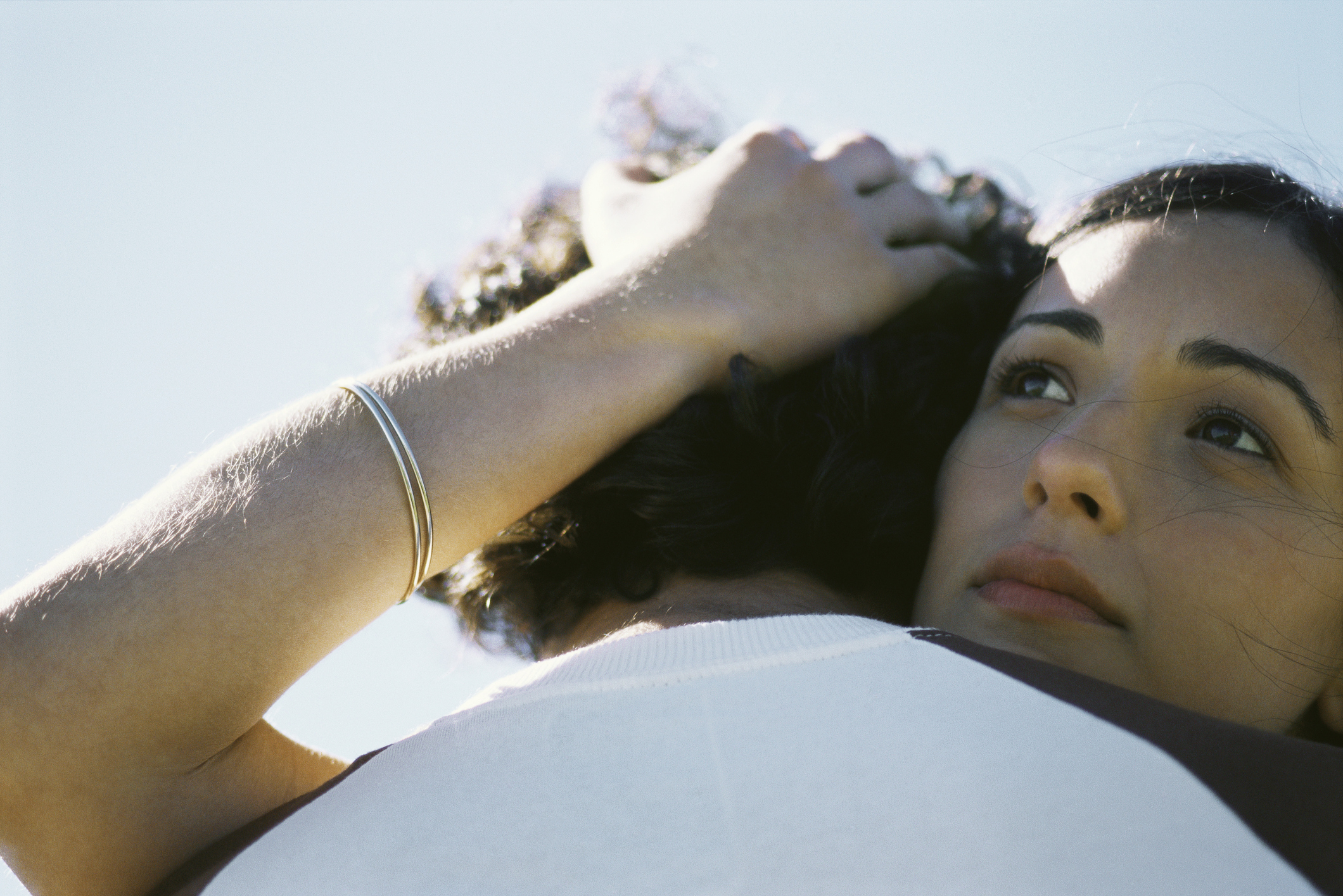You asked, we answered: what is an anxiety attack, and is a panic attack the same thing?
Read up on the symptoms of a panic attack, plus what they feel like and when to get help.


Read up on the symptoms of a panic attack, plus what they feel like and when to get help.
If you've ever experienced a panic or anxiety attack, know this: you're far from alone. Celebrities including J Lo and Emma Stone have both opened up about experiencing them, showing that anyone can experience them.
That said, that likely won't help you if you suffer from them. So, question: what is an anxiety attack, how do they happen, and what can you do to manage yours, if you experience them?
Here, experts Lynne Frederick, publicity manager at charity NO Panic, shares her take. Don't miss our guides to stress vs anxiety, anxiety symptoms, and how to find a therapist, while you're here.
Anxiety attacks: your guide
What's the difference between a panic and an anxiety attack?
The terms "panic attack" and "anxiety attack" are sometimes used interchangeably. Officially, however, an anxiety "attack" is not recognised by the Diagnostic and Statistical Manual of Mental Disorders (DSM-5). Instead, anxiety is referred to as the key component in a range of anxiety disorders (read our guide to the most common anxiety symptoms, here).
Meanwhile, a "panic attack" is the term for a sudden and acute experience of fear. The symptoms tend to peak within ten minutes and then subside, often leaving you exhausted. If you are having regular and unexpected panic attacks followed by at least a month of continuous worry about having further attacks, you might have panic disorder.
"A panic attack is an overload of anxiety and adrenalin in the body and is much worse than an anxiety attack," says Frederick.
"People believe they might be having a heart attack or they will die, and the physical symptoms are much more severe. When we are anxious, our breathing changes," she goes on. "We can get short of carbon dioxide and this gives the body anxious symptoms and it changes the chemical balance. "
Marie Claire Newsletter
Celebrity news, beauty, fashion advice, and fascinating features, delivered straight to your inbox!
But as terrifying as they can feel, panic attacks don't mean that you're actually in danger. And it can be reassuring to know that with the right support and tools, it's possible to manage and even eliminate them.

Panic attack symptoms
According to the DSM-5, a panic attack includes four or more of the following symptoms:
Mental panic attack symptoms
- Feelings of unreality
- Feeling detached from yourself
- Fear of losing control or going crazy
- Fear of dying
Physical panic attack symptoms
- Chest pain
- Chills
- Excessive sweating
- Feeling of choking
- Feeling dizzy, unsteady, lightheaded, or faint
- Heart palpitations, pounding heart, or accelerated heart rate
- Hot flashes
- Nausea or abdominal distress
- Numbness or tingling sensations
- Trembling or shaking
- Sensations of shortness of breath or difficulty breathing.
What can a panic attack feel like?
Brigita, 21, has been experiencing anxiety symptoms since she was fourteen. She struggles with anxiety every day, and sometimes suffers from panic attacks. She explains that they are normally caused by overwhelming thoughts that "swirl you in".
Brigita explains: "It's hard to get out as it can be one bad thought after another until it just gets worse and worse. For example, on my way to university or a mall, I might think, ‘I wonder if I look alright today?' Then it will spiral to: ‘What if I have a stain or hair strands hanging off my back? What if I have a hole somewhere? How does the overall fit look on me, maybe I look ridiculous!'
Slowly the thoughts send you into panic mode. If it sets in, you normally start feeling nauseous, disoriented, or have difficulty breathing. You just cannot calm down until you find a safe spot or go back home. It is definitely scary and also the fact when you know you are about to have it makes it worse.”
Gemma, 31, also experiences panic attacks, which she says can be "terrifying".
“I had my first panic attack when I was 14 and I thought I was having a heart attack,” Gemma says. “It feels like the walls are closing in around me and that the world is spinning. My mind starts to race and I want to run away, but don’t have the strength to move and so I end up sobbing uncontrollably. I just can’t breathe properly and it makes me absolutely petrified.”
For Gemma, a panic attack can impact multiple senses. “Sounds are muffled, so you can hear them but it is like you have your head underwater," she says. "You can feel so disconnected from your surroundings, things can look blurry too. It also leaves you utterly exhausted afterward, it totally drains you of all your energy and I usually have to sleep it off afterward, as I feel really out of sorts even once it is over.”
Panic attacks: when to get help
If you're experiencing panic attacks, it's important to speak to your GP about it. They might do tests to rule out any other underlying conditions and may diagnose you with panic disorder, depending on your symptoms.
The key treatments for panic disorder are certain medications (including a type of antidepressant called selective serotonin reuptake inhibitors — SSRIs) or talking therapy (read our guide on how to find a therapist here).
There are also things you can do in the moment if you feel a panic attack coming on. The NHS recommends taking the following steps:
- do not fight it
- stay where you are, if possible
- breathe slowly and deeply
- remind yourself that the attack will pass
- focus on positive, peaceful, and relaxing images
- remember it's not life-threatening.

UK charity NO Panic has a recording to listen to if you’re having a panic attack. It talks you through a breathwork training to calm your symptoms and reassures you that you are safe and that the feelings you are experiencing will pass. You can also ring 01952 680835 24 hours a day to hear the recording as a phone message Frederick says:
"When a person is suffering with anxiety, the best thing to do is start with relaxation and breathing techniques."
Why? Well, because the body is tense, sending the message to your brain that something is wrong. "If we have been anxious for a while, the body gets used to being tense and thinks it is normal," she continues. "Breathing techniques calm the nervous system by readdressing the imbalance between oxygen and carbon dioxide, and this makes the body relax."
By practicing breathing techniques regularly, we can teach the body to relax and can then apply the techniques before anxiety reaches a state of panic.
Lifestyle changes, such as eating regularly, having a healthy diet, and exercising can also help prevent panic attacks. "When we eat a lot of sugary refined carbohydrates the body gets a high — which it quite likes — but then very quickly the mood changes to being low. This is not good for anxiety, " says Frederick. "When anxious, the body releases adrenalin, but if we are not actually in danger the adrenaline has nowhere to go. Exercise burns off the adrenalin and calms the body down."
NO Panic also has a helpline and crisis number and runs a variety of Recovery Programs. These range from group telephone calls to one on one mentorship to help you learn to manage your anxiety.
If you're experiencing panic attacks, it's important to remember that there is nothing wrong with you. It might not feel like it, but there are plenty of other people who will understand exactly what you're going through. With the right support and tools, it's possible to regain some control and stop panic from ruling your life.
-
 Penn Badgley and Blake Lively kept their breakup a secret from the Gossip Girl cast and crew - here's what we know about their former relationship
Penn Badgley and Blake Lively kept their breakup a secret from the Gossip Girl cast and crew - here's what we know about their former relationshipBy Jenny Proudfoot
-
 This iconic rose perfume is a compliment magnet—it makes me feel ‘put together’ after just one spritz
This iconic rose perfume is a compliment magnet—it makes me feel ‘put together’ after just one spritzGrown-up and elegant, yet not at all dated.
By Denise Primbet
-
 Spring has finally sprung - 6 best outdoor workouts that are totally free and boost both body and mind
Spring has finally sprung - 6 best outdoor workouts that are totally free and boost both body and mindSoak in the nature and boost Vitamin D *and* endorphins.
By Anna Bartter